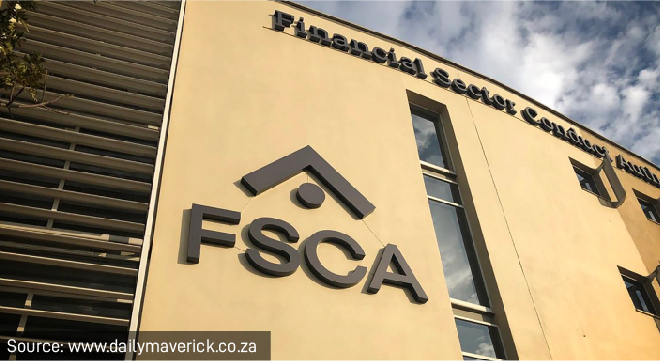The dealings of Blueway Trades, a “financial service” that offers prospective clients access to its AI mobile robot, at a price, has been called into question.
The FSCA has advised the public to exercise caution when engaging in financial services with Blueway Trades.
According to a media statement released this week, the FSCA has learned that Blueway Trades may be offering financial services to the public without proper authorisation.
Blueway Trades uses social media platforms such as WhatsApp, TikTok, and Instagram to solicit investments in stocks, commodities, and forex, promising unrealistic returns, the FSCA states. For example, “Only Blueway can turn R1700 – R120 000”, one Facebook post reads.
The company also promotes a trading robot, which, according to another Facebook post, is available at a significant discount, reduced from R8 000 to R2 000. Apparently, the AI mobile robot is an “artificial intelligence system that trades on your behalf without any trading experience”.
The entity’s TikTok account, which was banned – “maybe because we’re doing the most,” according to the founder – was later reopened under a new account. TikTok videos mainly feature young people living lavishly, enjoying gourmet meals, and taking in views from high-rise apartments. A common prop in these videos is stacks of cash, piled like bricks, casually flashed around or used as headrests. No information as to Blueway Trades’ credentials is provided.
The media statement noted that although the FSCA does not comment on the specifics of Blueway’s business, Blueway is not authorised to provide financial services to the public.
“The FSCA reached out to Blueway for clarification on its services. However, when Blueway’s representative realised the enquiry was linked to a complaint, communication was abruptly terminated,” the Authority states.
At the recent 2024 FPI Professional’s Convention in Cape Town, Gerhard van Deventer, the FSCA’s head of enforcement, noted that exploitation via social media platforms is one of the Authority’s focus areas.
“If there’s one trend that I can say without fear of contradiction is that scams and wrongdoings and contra mandate activity have moved substantially to social media platforms.”
He warned the public to be very suspicious of an investment offer that comes over social media, because this is not how financial services providers usually operate.
“That’s an unlikely way of dealing with the public, but unfortunately, it’s a great way to reach a lot of people at the same time. And if you have a group of a lot of people, there are quite a number in there who are going to fall for the scam, notwithstanding all our warnings,” said Van Deventer.
Unauthorised crypto-related financial services
Unauthorised crypto-related financial services were also highlighted during his discussion. The licensing process for crypto asset service providers (CASPs) under the FAIS Act began on 1 June 2023. Institutions already providing financial services related to crypto assets were required to submit their licence applications by 30 November 2023. By the end of June, the FSCA had received 383 licence applications, of which five were declined, and 138 CASPs were licensed.
In its Regulatory Actions Report for 2023/24, the FSCA noted that its Enforcement Division had established a dedicated investigation team to focus on individuals or entities that either did not apply for a licence or had their licence applications declined and are continuing to offer crypto financial services unlawfully.
Any institution or person found conducting such activities without authorisation will face regulatory action by the FSCA. This does not apply to those who submitted their licence application by 30 November 2023 and are still awaiting a decision. According to the report, 30 cases were under investigation.
Read: FSCA releases list of licensed crypto asset service providers
Van Deventer stated that the FSCA began its investigations by targeting entities that registered with the FIC as accountable institutions for crypto but had not applied for licences. This list is further supplemented by monitoring social media.
“I’m very happy to say that I don’t see a wave of cases coming our way. Not for instance, when we had the deadline for ODP (over-the-counter derivative provider) licenses. We saw a lot of overhangs still after the deadline. This doesn’t look so bad, but maybe I just don’t know what’s out there,” he said.



